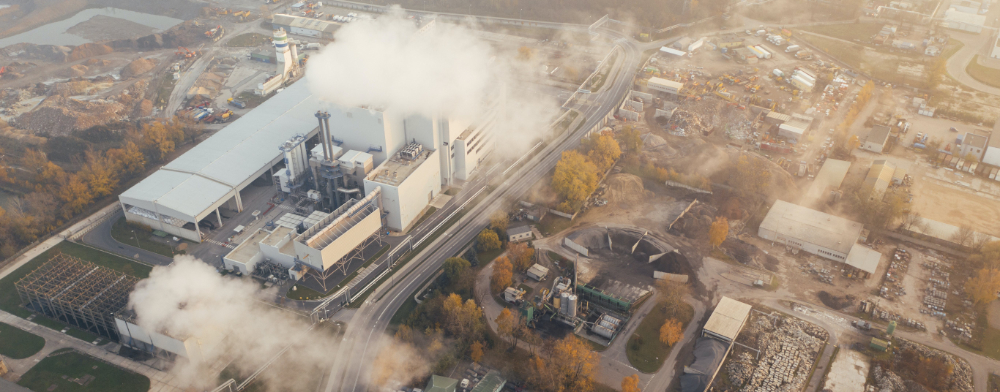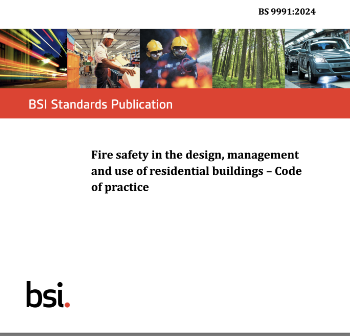CIOB joins forces to urge Government to regulate embodied carbon
CIOB has joined leading organisations to warn political leaders about the urgent need for regulation of embodied carbon emissions in construction.
The Chartered Institute of Building (CIOB) has teamed up with 10 leading organisations to warn political leaders about the urgent need for regulation of embodied carbon emissions in construction.
Environment experts from CIOB, UK Green Building Council, The Institution of Structural Engineers, the Institution of Civil Engineers, Construction Industry Council, Chartered Institution of Building Services Engineers, UK Architects Declare, RIBA, RICS, Association for Consultancy and Engineering and Part Z have all joined forces to send a clear message to Government.
They warn regulation is necessary because buildings and construction form a substantial part of UK carbon emissions, which are a main driver of climate change. The group believes UK policy has stalled and urgent action is needed.
Amanda Williams, Head of Environmental Sustainability at CIOB, said: “There have been numerous industry initiatives over recent years, calling for government action to reduce the construction industry’s embodied carbon emissions.
“We now join forces as an expert group to pull these proposals together, uniting with one voice for change and asking Government to ensure the UK keeps pace with those who are currently leading this agenda.”
The group of experts has issued a paper to political leaders with a key ask: to include in their manifestoes a commitment to move to reduce embodied carbon emissions in construction within two years of starting government.
Steps for action include:
- In 2024: Policy signalled to confirm the dates and interventions below.
- By 2026: Mandate the measurement and reporting of whole-life carbon emissions for all projects with a gross internal area of more than 1000m2 or that create more than 10 dwellings.
- By 2028: Introduce legal limits on the upfront embodied carbon emissions [those emissions due to the use of materials in the initial construction] of such projects, with a view to future revision and tightening as required.
The group says these actions are essential as around one in 10 tonnes of the UK’s total greenhouse gas emissions are “embodied carbon” emissions. These relate to the production and use of construction materials, which account for a substantial part of the UK’s overall carbon emissions.
Policy recommendations would be complementary to the ‘carbon pricing mechanism’ announced by the government in 2023 and which is due to be introduced in 2027, as well as to existing UK initiatives that incentivise the use of lower carbon cement and steel.
This article appears on the CIOB news and blog site as "CIOB joins forces to urge Government to regulate embodied carbon" dated January 31, 2024.
--CIOB
[edit] Related articles on Designing Buildings
- An in-depth look at Environmental Product Declarations EPDs.
- BPIE report urges EU to incorporate the carbon footprint of construction into policy.
- BS EN 15978-1.
- BSRIA Whitepaper on Embodied Carbon NZG 4/2023
- Carbon dioxide.
- Carbon footprint.
- Climate change act.
- Climate change science.
- Climate Emergency Design Guide.
- Cradle to grave.
- Dr. Natasha Watson; UK lead for embodied carbon at Buro Happold.
- Embedded carbon emissions.
- Embodied carbon.
- Embodied energy.
- EN 15804+A1 2012.
- Environmental product declaration EPD.
- Greenhouse gas.
- Life Cycle Carbon Emissions.
- Mandatory and optional environmental impact categories.
- Optional environmental impact categories.
- PHribbon tool calculates embodied carbon of designs.
- Product Environmental Footprint PEF.
- Product category rules PCR.
- RICS launches new global edition of its ground-breaking Whole Life Carbon Assessment standard.
- Sustainable procurement.
- Sustainability in building design and construction.
- The sustainability of construction works.
- Upfront emissions.
- Use stage embodied carbon.
- Wood, embodied carbon and operational carbon.
- Whole life carbon.
Featured articles and news
CLC and BSR process map for HRB approvals
One of the initial outputs of their weekly BSR meetings.
Building Safety Levy technical consultation response
Details of the planned levy now due in 2026.
Great British Energy install solar on school and NHS sites
200 schools and 200 NHS sites to get solar systems, as first project of the newly formed government initiative.
600 million for 60,000 more skilled construction workers
Announced by Treasury ahead of the Spring Statement.
The restoration of the novelist’s birthplace in Eastwood.
Life Critical Fire Safety External Wall System LCFS EWS
Breaking down what is meant by this now often used term.
PAC report on the Remediation of Dangerous Cladding
Recommendations on workforce, transparency, support, insurance, funding, fraud and mismanagement.
New towns, expanded settlements and housing delivery
Modular inquiry asks if new towns and expanded settlements are an effective means of delivering housing.
Building Engineering Business Survey Q1 2025
Survey shows growth remains flat as skill shortages and volatile pricing persist.
Construction contract awards remain buoyant
Infrastructure up but residential struggles.
Home builders call for suspension of Building Safety Levy
HBF with over 100 home builders write to the Chancellor.
CIOB Apprentice of the Year 2024/2025
CIOB names James Monk a quantity surveyor from Cambridge as the winner.
Warm Homes Plan and existing energy bill support policies
Breaking down what existing policies are and what they do.
Treasury responds to sector submission on Warm Homes
Trade associations call on Government to make good on manifesto pledge for the upgrading of 5 million homes.
A tour through Robotic Installation Systems for Elevators, Innovation Labs, MetaCore and PORT tech.
A dynamic brand built for impact stitched into BSRIA’s building fabric.
BS 9991:2024 and the recently published CLC advisory note
Fire safety in the design, management and use of residential buildings. Code of practice.




























